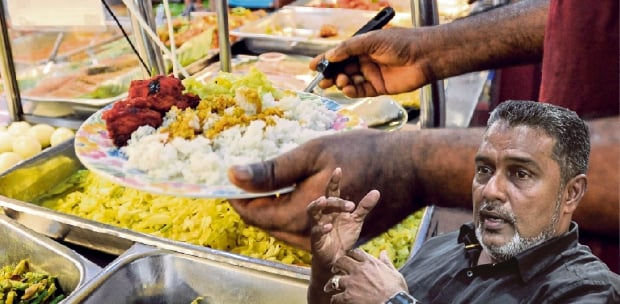KUALA LUMPUR: The Malaysian Muslim Restaurant Owners Association (Presma) disagrees with a recent proposal to repeal the 24-hour operating licences for eateries.
Its president Datuk Jawahar Ali Taib Khan said the people frequently patronise eateries such as mamak restaurants late at night and this has become a deeply-rooted part of Malaysian culture.
He argued that the issue should not solely be framed in terms of health implications because late-night dining serves various social and cultural functions within the community.
"It has become a cultural norm for people in our country to consider restaurants as gathering places not only for eating and drinking.
"It is also a venue for socialising after work due to their conducive atmosphere and easy accessibility," he said in a statement.
Jawahar said there were far greater risks associated with the unrestricted sale of alcohol rather than restaurants which operated 24 hours a day.
"To be more realistic, all parties including non-governmental organisations and consumer activists need to pay attention to the issue of 24-hour premises involved in the open sale of alcohol.
"It is more risky for safety and endangers the public especially when they are on the road."
Meanwhile, Malaysian Indian Restaurant Owners Association (Primas) president J. Govindasamy emphasised the importance of educating the public rather than shutting down eateries at night.
"I strongly disagree with this. It is not a strong enough reason to close eateries solely for health reasons because they serve fresh ingredients, not frozen ingredients."
He further argued that the decision on when to eat ultimately lies with an individual and pointed out that the real issue at hand is the lack of exercise among the people.
"Some of the restaurants have already taken steps to address this concern by providing calorie count charts for each item in their menu to help customers manage their intake."
Govindasamy said limiting the business hours of such eateries would also have economic consequences. He expressed empathy for businesses which are grappling with financial commitments.
"The current economic landscape is already challenging. Many establishments heavily rely on 24-hour operations to sustain their businesses, particularly those burdened by high rental costs.
"The closure of such establishments would trigger a chain reaction, affecting not only restaurant owners but also their suppliers and employees," he told the New Straits Times.
On Monday, Consumers Association of Penang (CAP) president Mohideen Abdul Kader urged the government to implement stricter regulations on operating hours at eateries, citing concerns about rising obesity rates among the people.
He said limiting access to late-night meals would promote healthier eating habits among Malaysians, while preventing weight gain, sleep issues and digestive ailment.
Various quarters responded to Mohideen's statement. Kepong member of parliament Lim Lip Eng
said was no need for such a ban because it would restrict food choices and diminish Malaysia's reputation as a food paradise.





